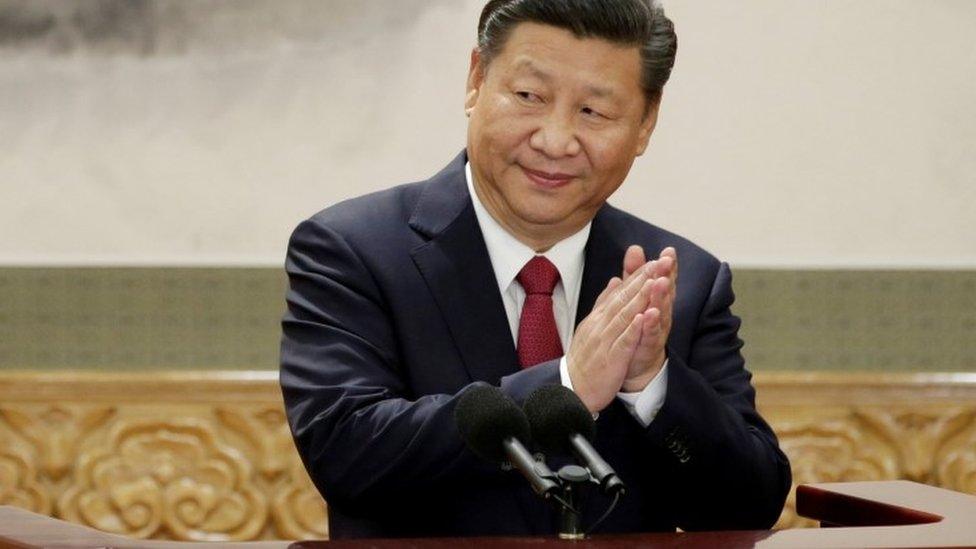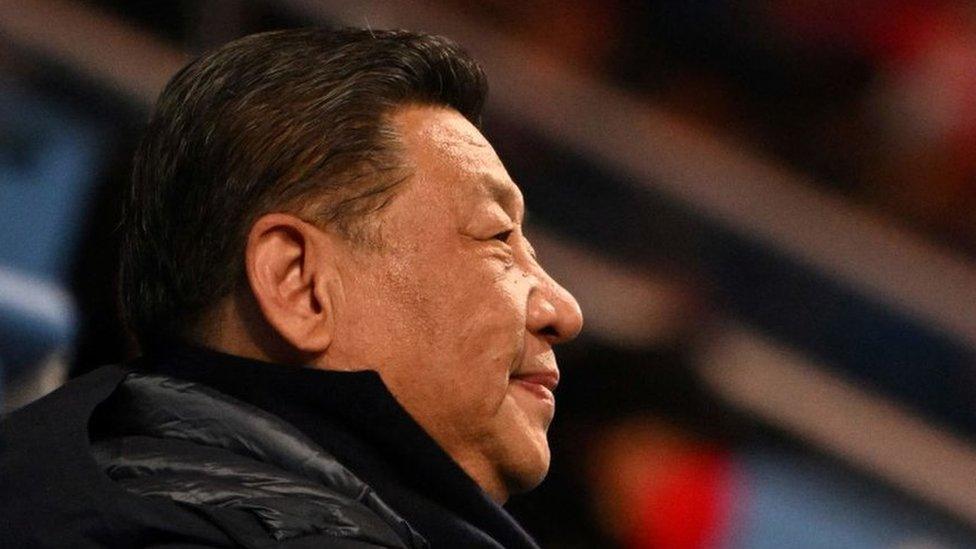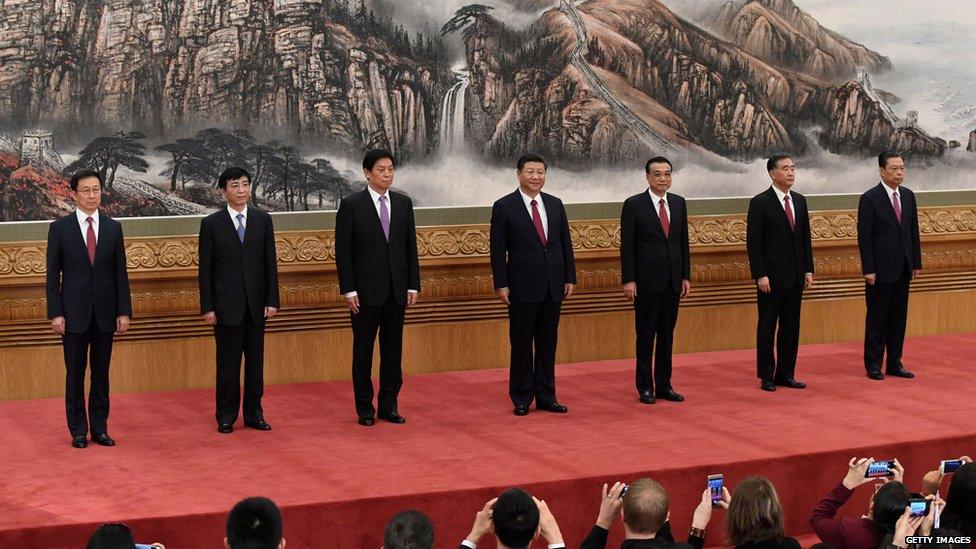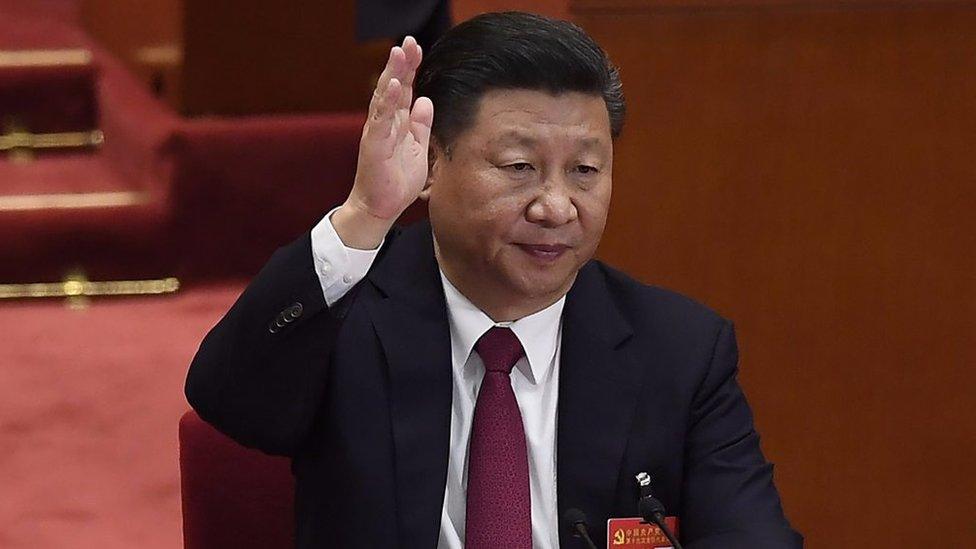Why China's proposal was long expected
- Published

China's Communist Party has proposed scrapping presidential term limits, a move that would allow the current leader, Xi Jinping, to stay in power. It is the culmination of a long shift in Chinese politics, says BBC World Service Asia Pacific editor Celia Hatton.
This is the announcement many have been expecting.
China's President Xi Jinping has become a dominant figure in Chinese politics, commanding the loyalty of the ruling party's factions, the military and the business elite. He is the most powerful leader since the country's revolutionary founder, Mao Zedong.
Mr Xi's photo is regularly plastered on billboards across the country and his authorised nickname, "Papa Xi", appears in official songs.
Last week, an estimated 800 million tuned in to watch China's annual Lunar New Year gala on television, which promoted Mr Xi's "New Era of Chinese Thought" throughout.
More on China under Xi:
For decades, the Communist Party has dominated life in China. Now, Xi Jinping has stepped into that spotlight, outshining the Party that promoted him to the top spot.
In the past, the Communist Party stayed firmly in control, but the man at the top of the Party was in command for a limited amount of time. One leader would dutifully hand power to another after serving a decade in power.
Xi Jinping disrupted that system from the early days of his time in office. He quickly instituted an anti-corruption campaign that disciplined more than a million Party officials for graft - usually for accepting bribes or misspending government money.
BBC China editor Carrie Gracie has a look at the Communist Party messages all over Beijing
The same campaign conveniently eliminated Mr Xi's political rivals and silenced any doubters into submission.
Mr Xi has also shown a clear political vision since his first days in office, promoting huge national projects like the One Belt One Road initiative to build new global trade routes and announcing grand plans for China to erase poverty by 2020.
There has long been speculation that he might push to stay on as president. Mr Xi is so powerful that it was difficult to imagine who could rise to succeed him in five years.
The leadership has been laying the groundwork for this announcement: at a key Party meeting last October, Mr Xi defied tradition and failed to nominate an obvious successor.

- Published10 October 2022

- Published25 October 2017

- Published25 October 2017
- Published24 October 2017
